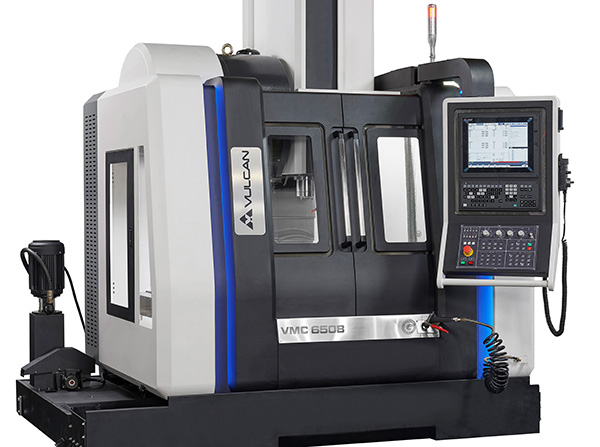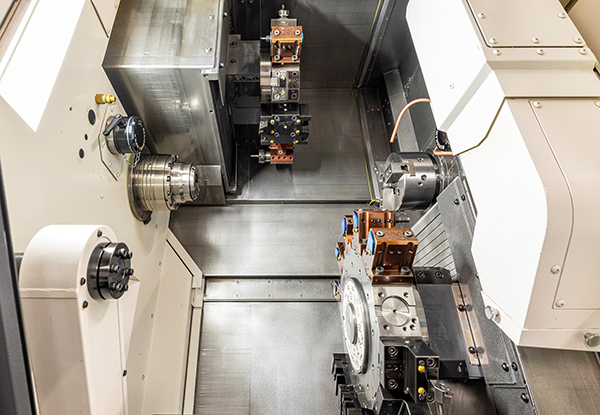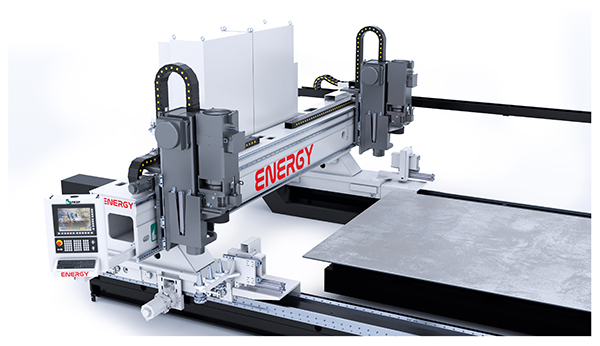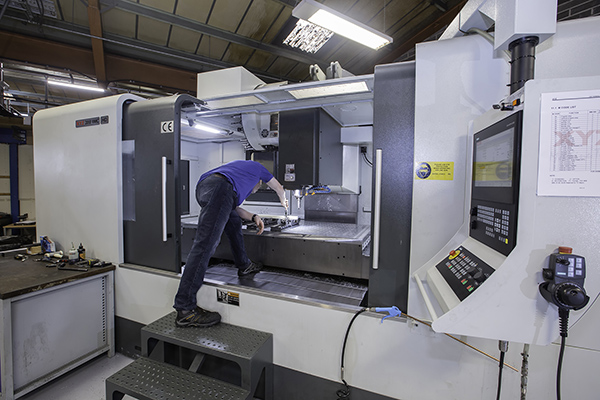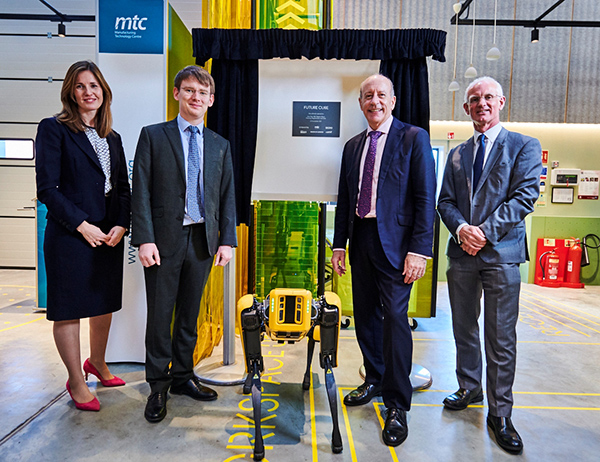
Nestled on the outskirts of Dundee, Quest Precision Engineering has been on a trajectory of continuous growth since Gordon Deuchars joined the business three years ago. Operating out of a 20,000 sq ft facility and serving customers in a diverse range of sectors, the subcontract manufacturer has recently bought not one, but two Nakamura-Tome turning centres from Engineering Technology Group’s (ETG) Scottish distribution partner RAM Engineering & Tooling.
Serving customers in the oil and gas, electronics, automotive, and aerospace industries, ISO9001-certified Quest Precision is well versed in machining everything from simple to the most complex of components, from materials as diverse as steel, stainless, plastics, aluminium, Inconel and monel. It is this requirement for the one-hit machining of complex parts from challenging materials that led to the installation of the first Nakamura-Tome turning centre in December 2019, a twin-spindle twin turret WT150II. The impact of the Nakamura-Tome WT150II resulted in a second machine being ordered and installed four months later.
Prior to the installation of the first Nakamura-Tome WT150II, Quest was machining autonomous valves for the oil and gas industry in five operations on four machine tools. Unfortunately, production of the complex 2-inch diameter Inconel 718 valves was time-consuming and not cost-effective enough for Quest to compete with an existing Chinese supplier, leaving the 22 employee company with small-batch work and R&D projects. To win more of the business from the existing overseas supplier, Quest needed to increase productivity and reduce costs; the answer was the Nakamura-Tome WT150II.

Recalling the situation, Quest Precision’s managing director Gordon Deuchars says: “There are 25-30 different valves in the family of parts and, for us to secure more orders, we had to increase throughput and reduce costs. I enquired to a post that Ross Milne from RAM Engineering & Tooling posted on LinkedIn about the WT150II and, within four weeks, we were provided machine specifications, viewed the machine, made our purchasing decision, had a turnkey solution developed for the valves and had the machine installed and running as part of a complete turnkey solution.”
Depending upon the variant, the valves typically have a cycle time from 2 to 4 hours with the majority of valves processed in 3 hours on four machine tools with an additional 25% set-up time across the numerous machines. With valve batches running from prototypes through to production runs of 1000, machining such volumes on the existing machine tools was unfeasible. The installation of the twin-turret twin-spindle Nakamura-Tome WT150II immediately remedied the situation.
Manufacturing the valves in one hit on the WT150II reduced cycle times by 50% to 1.5 hours, while releasing capacity and labour requirements across the shop floor. The impact was so immediate that Quest went out and bought a second WT150II.

“The WT150II made such a difference to our production and set-ups that we ordered a second machine within weeks,” explains Deuchars. “The first machine arrived in December 2019 and the second was installed by March 2020. Instead of using multiple machines and up to five staff on the valves, we now have one operator running the two Nakamuras. With one staff member running the machines by day and another at night, the two WT150II machines have increased our productivity by 500%, making us cost-competitive with China. Furthermore, the machines have reduced our tooling costs considerably due to the set-up and rigidity.”
The result of investing in the two Nakamura machines has been a significant uptick in business from this particular offshore customer.
“We have invested in five machine tools throughout Covid and the Nakamura machines have made a huge impact on our business,” says Deuchars. “Although business levels are not yet at pre-Covid levels, the investment has positioned our business well for the future.

“With regard to our offshore customer, the challenge they had with component supply from China was proximity,” he continues. “If our customer wanted to undertake any R&D work, amend or inspect any parts, proximity was an issue. Now, this customer can jump in a car and visit our facility to discuss projects, look at our production methods and equipment, and investigate opportunities to enhance and develop their product lines with a local supplier.
“Since investing in the Nakamura machines, we have won more business from this customer and the Nakamuras are 95% dedicated to producing the Inconel valves. However, Covid has impacted business and we would expect the required production volumes to incrementally increase into 2022. At this point, we will be making decisions around whether we want to buy more WT150II machines.”
As a vastly experienced engineer and business owner, Deuchars has purchased more than 250 machine tools during his career – so why the Nakamuras?
“I’ve bought machines of most brands and types down the years, but never Nakamuras. However, the reputation of these machines preceded them. In this instance, we knew we needed a twin-turret, twin-spindle machine to achieve efficient one-hit machining. When we looked at the WT150II, the build quality and innovation in the machine was as apparent as the reputation of the brand. What we also needed was an immediate solution without suffering from the lead-time issues of so many machine tool vendors at present. Ross at RAM Engineering fulfilled all of our needs.
“With the valves being a complex family of parts, we needed a turnkey solution and RAM Engineering delivered this, fast,” he states. “We were taken through the specification add-ons we would require to produce the family of valves and this was trialled and proven before delivery, but most impressive of all was having a turnkey solution delivered in less than four weeks. This was only achievable through first-class service and communication, which we certainly received with the support of ETG’s application engineer Steve Howes, who worked in synergy with Quest and RAM. The first machine has now been running around the clock for almost two years and we haven’t had any trouble with it. Both machines have been workhorses that deliver for our business every day.”
Having the insight to invest during the pandemic, Quest Precision has ambitious plans for the future.
Says Deuchars: “We currently employ 22 staff and, within the next two years, we want to take our staff level up to 40 and invest upward of £1.7m in the business. By investing in high-end technology like the Nakamura-Tome WT150II machines, we will grow our market share of the subcontracting industry in Scotland – and we are confident that we can help UK manufacturers to re-shore more work.”
“The WT150II machines have improved and streamlined productivity, reduced costs and enabled us to better allocate our staff,” he concludes. “Additionally, the machines have released almost 15% of capacity from the rest of our facility. We will build upon this over the next couple of years and Nakamura machines will certainly be central to our investment plans.”
For further information
www.engtechgroup.co.uk







